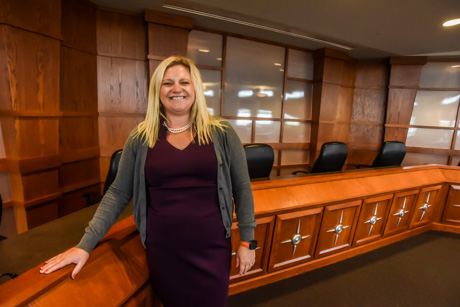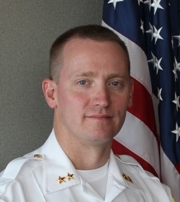There are vacancies in the three major city departments of police, fire, and public works, plus several unfilled openings throughout the Genesee County municipality.
While county officials have waived Civil Service exam fees, expanded residential limits, and worked with certain occupations to establish more flexible workplace options, there are yet other issues at play in having employee gaps, city officials say.

“When you hire, there’s a rule of three: you can only look at the top three in the bracket,” she said during an interview this week. “The New York Conference of Mayors supports expanding it.”
If that limit of three could be expanded to five, that would obviously widen the pool of eligible candidates, she said. Police Chief Shawn Heubusch agreed. He would also like to see additional revisions to how Civil Service testing works.
The New York State Association of Chiefs of Police is working with the state Sheriff’s Association to bring about a change in the Civil Service rules “that make hiring minority and underrepresented persons difficult,” Heubusch said.
“Our organizations, jointly, will be requesting that Civil Service be reformed to allow for a Pass/Fail test, for the State to deliver testing more frequently and to see faster turn-around times in terms of scoring for them,” Heubusch said. “Change to the police officer physical agility testing requirements to be job-based as opposed to the antiquated standards that exist. We would also like to see more uniformity across the state in terms of how the rules are applied.”
For example, in one part of the state, Civil Service commissions will deliver the test on an annual basis, while in other parts, it is given every two or even four years, he said.

Another delay in filling positions in the police and fire departments, she said, is the training time required in academies after a good candidate is hired.
“It can take six to 12 months,” she said.
And that’s after an extended period due to Civil Service protocols.
“The law really does hinder our ability to hire qualified candidates,” she said.
A Civil Service reform bill (below) has been approved by the Senate and Assembly, and has been forwarded on to the governor’s office for final approval, she said.
Reform the Civil Service Law
Municipalities are always looking for innovative ways to effectively manage their workforce. Unfortunately, in many instances, they are restricted by arcane Civil Service rules. The Civil Service Law should be amended to grant local officials an appropriate level of flexibility in hiring and workforce management decisions. Specifically, NYCOM supports the following reforms:
- Expand the number of eligible employees for appointment to a Rule of 5;
- Authorize procedures whereby a provisionally hired employee can transition to a permanent appointment if an exam is not offered within a certain period of time;
- Classify all part-time positions as non-competitive by operation of law instead of by local rule;
- Require continuous recruitment whenever possible; and
- Allow out-of-title work in a declared state of emergency.
Reforms to the civil service appointment process would be especially helpful in the hiring of police and fire chiefs, water and wastewater operators and other highly technical positions of employment where there is a limited supply of qualified candidates.
